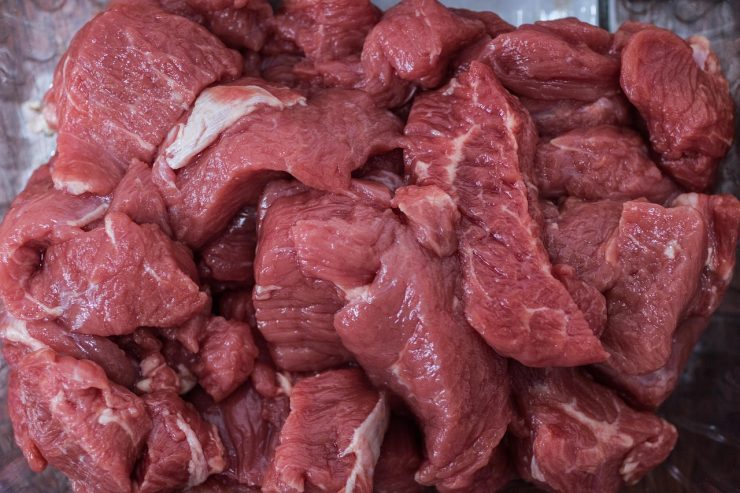Is Red Meat Really That Dangerous? Let’s Break It Down.
You’ve probably seen the headlines lately—red meat and processed meats are back in the hot seat. Social media is buzzing, news outlets are chiming in, and once again, there’s talk about meat causing cancer.
But is this really something new? Not quite. The media has taken swings at red meat before, and now it’s just getting more airtime. So let’s slow down and look at what’s actually going on.
What’s all the fuss about?
This latest round of meat-shaming comes from a report published in The Lancet, based on data reviewed by the World Health Organization (WHO). Sounds official, right? It is. This wasn’t some tiny, random study either—22 scientists from 10 countries gathered to review over 800 studies from around the world. So yeah, this was a pretty big deal.
But here’s where it gets interesting…
What did they actually say?
The WHO decided to classify processed meats—think hot dogs, deli meats, bacon—as a Group 1 carcinogen. That’s the same group as cigarettes, asbestos, and plutonium. Pretty intense, right?
Red meat (like beef, pork, lamb, etc.) got labeled a Group 2A probable carcinogen, which is a step down. This group includes things like glyphosate (weed killer), DDT, and… getting a sunburn.
So, yes—processed meats got the stronger warning. But before you swear off bacon forever, let’s dig into what those labels really mean.
What’s the actual risk?
Here’s the stat that’s making the rounds: for every 50 grams of processed meat you eat per day (about two slices of bacon), your risk of colorectal cancer goes up by 18%. For 100 grams of red meat, the increase is 17%.
But wait—those numbers sound scary until you look at the absolute risk. The average lifetime risk of developing colon cancer is about 1.8%. So even with a daily bacon habit, that number only increases to around 2.1%. That’s about 3 extra cases per 100,000 people.
Compare that to smoking, which increases your cancer risk by 2,000%, and suddenly bacon doesn’t look so terrifying.
The problem with these studies…
Here’s where things get tricky. These kinds of studies are observational, meaning they can’t control for everything—like whether someone is also a smoker, drinks heavily, lives a sedentary lifestyle, or eats tons of processed junk alongside their meat.
Let’s be honest—most people eating a daily fast food burger aren’t also loading up on organic veggies, sipping green smoothies, or squeezing in a yoga class. It’s not the red meat alone—it’s the bigger lifestyle picture.
Plus, not all meat is created equal.
Factory meat vs. pasture-raised meat
There’s a huge difference between processed, factory-farmed meat and high-quality, pasture-raised red meat.
Pasture-raised meat is a nutritional powerhouse—loaded with:
-
High-quality protein
-
Vitamin B12 and other B vitamins
-
Zinc and iron (the kind your body actually absorbs)
-
Omega-3s and CLA (conjugated linoleic acid), which can fight cancer and help with fat loss
Meanwhile, your typical store-bought hot dog is often made from low-grade, processed scraps, stuffed with preservatives, chemicals, dyes, and artificial flavors. Not exactly a health food.
Cooking matters too
Even how you cook your meat makes a difference. High heat methods like grilling and frying can create carcinogenic compounds (like heterocyclic amines). But you can dramatically reduce this by:
-
Cooking on lower heat
-
Marinating your meat in antioxidant-rich herbs and spices (like turmeric, rosemary, or garlic)
-
Avoiding charred, blackened bits
-
Eating your steak rare to medium-rare (especially if it’s grass-fed)
So should you stop eating red meat?
Not necessarily. Here’s the bottom line:
If you eat meat, choose grass-fed, pasture-raised sources whenever possible
Eat a ton of fresh veggies with it—especially colorful ones
Use herbs and spices for flavor and anti-inflammatory benefits
Skip the processed stuff (think bologna, hot dogs, and mystery meat)
Limit super high-heat cooking methods
And remember: balance matters more than perfection
The healthiest eaters I know aren’t avoiding meat—they’re just choosing better meat and pairing it with a nutrient-dense lifestyle.
Final thoughts
The takeaway isn’t “all red meat is bad.” It’s more like: if you’re going to eat it, do it right. That means high-quality sources, thoughtful prep, and pairing it with a healthy lifestyle.
And honestly? That’s true for any food. It’s not just what you eat—it’s how you live that makes the biggest difference.











